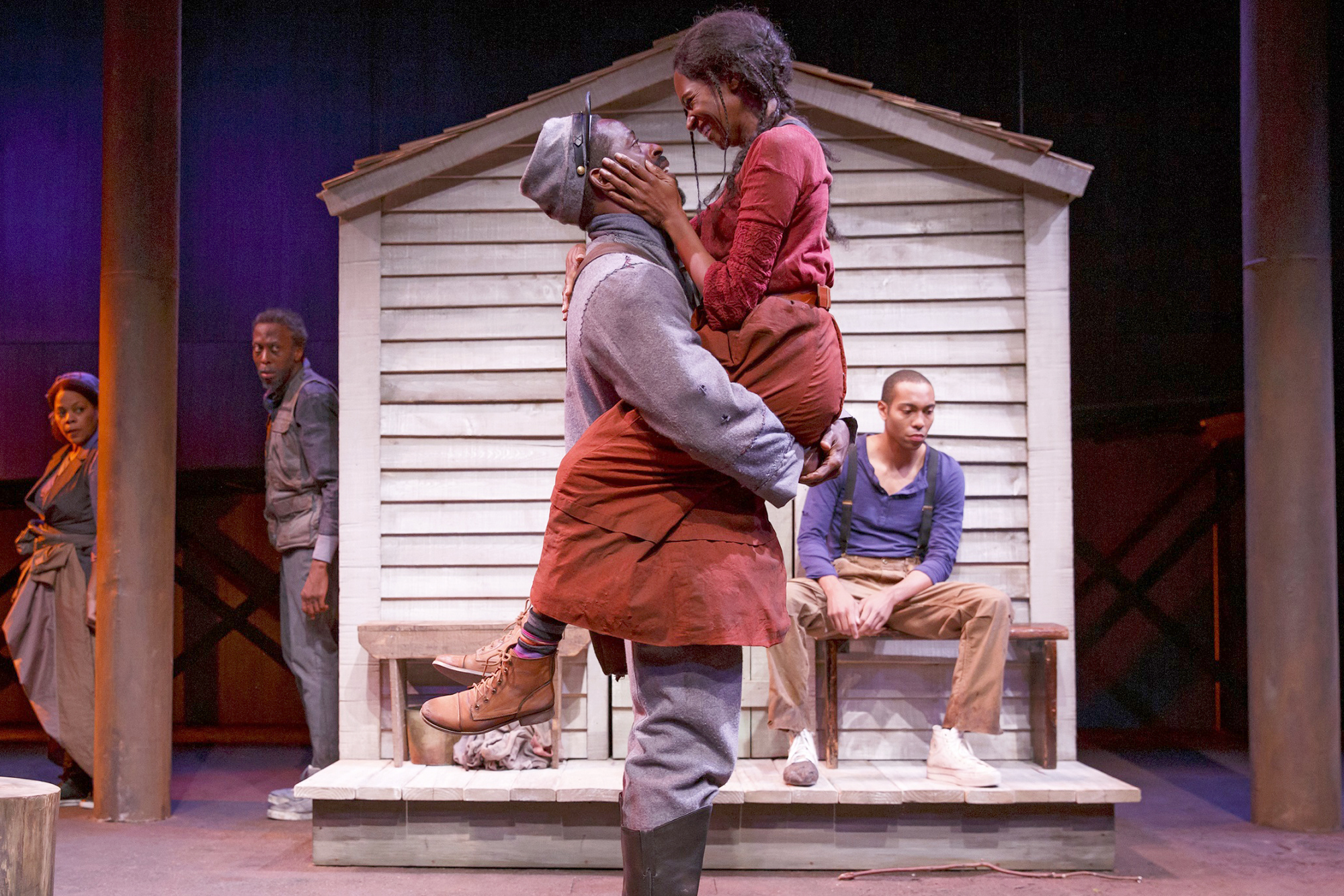
It is not uncommon for a new play to spend years in development before it finally sees a professional production. For playwright Suzan-Lori Parks it was a five year journey to fully realize her epic play, Father Comes Home from the Wars, Parts 1, 2 & 3. The play tells the story of a slave, Hero, who fights alongside his master in the Civil War, in order to earn his freedom. Parks began developing the play at the Public Theater in 2009, and it received its world premiere in the fall of 2014. Over the course of those five years, the cultural conversation in America took a decided shift. A play that began churning on the heels of President Obama’s inauguration and naïve (if hopeful) claims of a “post-racial America” saw its world premiere two-to-three months after the tragic deaths of Michael Brown and Eric Garner, and the rise of the #BlackLivesMatter movement.
In an interview with NPR, Parks states, “I wrote these plays long before the current events…happened. It wasn’t like I was commenting on these events. That’s the distressing thing.”
Art mirrors life, life mirrors art, and social commentary is one of the most powerful mirrors a playwright can hold up to an audience. Although the play occurs during the end of the Civil War, Parks’ use of anachronism and parallelism allows the play’s meaning to reverberate well into the present day and beyond. In the play’s first scene, a chorus of slaves sprinkle their prose with contemporary turns of phrase, and touches of modern dress can be found in the play’s design – some critics noted the use of Converse sneakers in particular. These anachronisms may have been added as a general way to bridge the 150 years between when the play is set and when it premiered. But in light of these events, the parallels carried even more weight and significance.
During the second act of the play, the protagonist, Hero, asks who will he belong to if he wins his freedom?
The cast of Father Comes Home From The Wars at The Public Theater. Photo by Joan Marcus.
HERO.
So—when a Patroller comes up to me, when I’m walking down the road to work or to what-have-you and a Patroller comes up to me and says, “Whose nigger are you, Nigger?” I’m gonna say, “I belong to myself”? Today I can say, “I belong to the Colonel.”
(Imagining being confronted by a Patroller, HERO holds up his hands. Reminiscent of: “Hands up! Don’t shoot!”)
HERO.
“I belong to the Colonel,” I says now. That’s how come they don’t beat me. But when Freedom comes and they stop me and ask and I say, “I’m my own. I’m on my own and I own my ownself,” you think they’ll leave me be?
For the record, this stage direction was not imagined by Suzan-Lori Parks. The actor originating the role of Hero, Sterling K. Brown, raised his hands up while rehearsing this moment (about a month following Michael Brown’s death). Parks recalls, “I just gasped. I thought ‘Oh dear.’” The moment was so palpable that not only was it added into the production, it made its way into the very bones of the play. By including this direction into the script, future productions are therefore intended to replicate this moment, and a whole other set of meaning is layered onto this multi-faceted play.
It is impossible not to acknowledge the influences of the Greeks on Father Comes Home from the Wars too. The aptly named character, Hero, calls himself Ulysses by the end of the play, his brother’s name is Homer, and his dog’s name is Odyssey Dog. The characters also examine the conflicts, and causes/effects of their actions from all angles, which is often considered another staple of Greek theatre (arguably to the genre’s detriment). So here we have a play that pulls from theatrical tropes established in the ancient world, which is set 150+ years into America’s past, and serves as an allegory for our current times.
It is hard to imagine a play with a farther reach. Through this expansiveness, Parks offers her audience an opportunity to engage with incredibly complex social issues whose meanings have shifted over time, and will continue to progress as we move forward. “This play is very much about possibility, and in one sense, the possibility of freedom.” That possibility carried different meanings in the five years between the play’s inception and its world premiere. We are eager to discover how this moving work with ripple across our future.
To purchase a copy of Father Comes Home from the Wars, click here, and to learn more about licensing a production, click here.

Comedy Mysteries: Gasps, Laughs and Thrills

A Children’s Theatre Classic: An Interview with Snow White And The Seven Dwarfs Composer Michael Valenti


